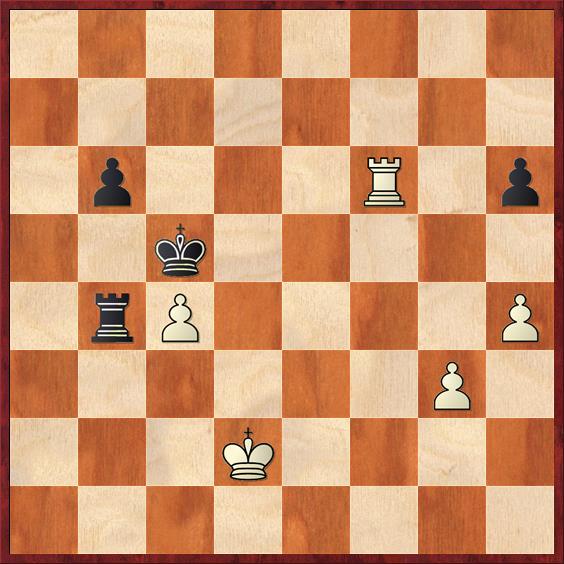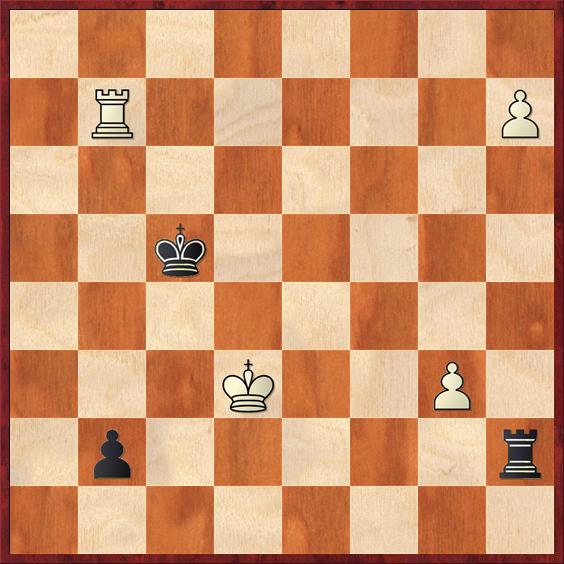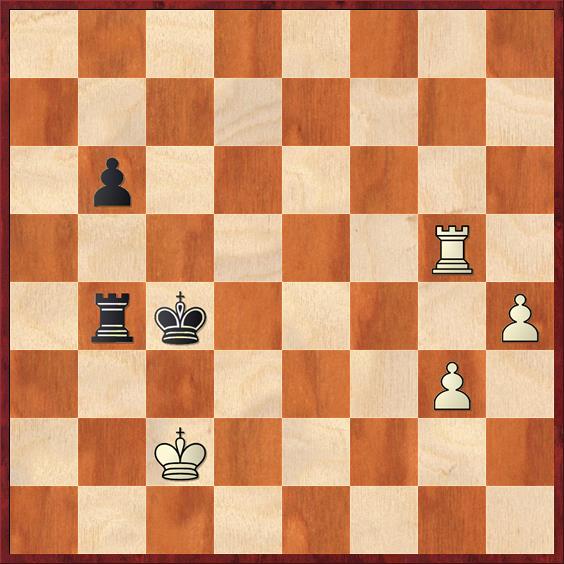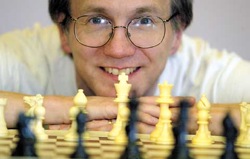It’s right there in the French name of the game: échecs. Failures. Except that now, in the Internet era, we just call them “fails.”
So in the CalChess Labor Day Championship I had four epic fails. Loss against Kostya Kavutskiy. loss against Michael Wang, loss against Uyanga Byambaa, and a draw against Bryon Doyle that felt like a loss. After the fourth game I withdrew because my confidence was so wrecked that I couldn’t imagine playing two more games today.
Before the tournament I was actually in a pretty positive frame of mind. I was glad to see several of my compatriots, with whom I had labored in the salt mines of expert-dom, who were also sporting shiny new master ratings. Teemu Virtanen, Ladia Jirasek, Gabriel Bick, Uyanga Byambaa were all 2200 or above. Even though I’m 40 years older than them, I sort of felt as if they were “my peeps,” because we graduated to master together.
It was also really nice to see Jesse Kraai and Daniel Naroditsky again. Even though they are globe-trotters now, those of us who still play our chess in the Bay Area are happy to see them return to their roots. Besides, as Daniel told me, the tournament was only nine minutes away from his home!
I wish I could report more on the tournament itself, but I was so preoccupied with my “fails” that I barely noticed what was going on around me. I did notice that some of the other young players, Rayan Taghizadeh and Vignesh Panchanatham, got off to great starts. They were tied for first at 3-0, and I believe that Rayan’s early results included an upset over GM Kraai. Ah, to be young and carefree, and to have infinite faith in one’s ability!
Here is the one position that sums up my weekend completely. It really boils down to what I just wrote, lack of faith in my ability and my own analysis.
 Position after 59. … Kc5. White to move.
Position after 59. … Kc5. White to move.
FEN: 8/8/1p3R1p/2k5/1rP4P/6P1/3K4/8 w – – 0 60
I was playing White against Bryon Doyle, and I had basically been winning the whole game, or at least since I won a pawn on move 14. At last the end was in sight. I had four minutes left for the rest of the game, and Bryon had about the same amount of time.
This was already, of course, mistake number one. I had no business being in time trouble. I was comfortably ahead the whole game, and priority number one when you are ahead is to snuff out your opponent’s counterplay. Usually we mean counterplay over the board, but the clock is also a form of counterplay. I should have had at least fifteen minutes left at this point.
To make things worse, in this position I used up two minutes calculating the forcing variation 60. Rf5+! Kxc4?! 61. Rf4+ Kc5 62. Rxb4 Kxb4 63. g4! White wins by one tempo, because Black’s king is outside the square of the h-pawn (not the g-pawn). The key line is 63. … Kc5 64. g5 hg 65. h5! and White wins.
The reason I took two minutes on this was that I had to triple-check my calculation, because my brain was so tired and the penalty for miscalculating was so high. Finally, when I was absolutely, 100 percent sure that this was winning for White, I reached out to play the rook move… and changed my mind! Absolutely on the spur of the moment, I told myself, “You’re over-analyzing” and I played 60. Rxh6?? instead. I swear it was as if somebody else took control over my hand.
Of course, Bryon played 60. … Rxc4 and it dawned on me that after 61. Rg6 the win, if I have one, is no longer easy. A flat-out pawn race doesn’t work for White: If 61. … b5 62. h5 b4 63. h6 b3 64. h7 Rc2+ 65. Kd3 Rh2 66. Rg7 b2 67. Rb7 Black draws (see diagram):
 Position after 67. Rb7 (analysis). Black to move.
Position after 67. Rb7 (analysis). Black to move.
FEN: 8/1R5P/8/2k5/8/3K2P1/1p5r/8 b – – 0 67
Here 67. … Rxh7! draws on the spot. I could torture Black to see if he knows his endgames after 68. Rxb2 Kd5, but I assume that he would know how to hold this.
To be honest, with two minutes on my clock (soon down to one minute) I didn’t get this far in my analysis. I just thought, “Oh my god, how am I going to stop his pawn?” So again I changed my mind at the last moment and played 61. Rf6? Bryon, scarcely believing his good fortune, played 61. … Rg4, I played 62. Rf3 and now the game is definitely drawn because I have condemned my rook to passivity.
Now to be absolutely honest, if I had played 60. Rf5+ and he had retreated with 60. … Kc6, the win is not quite 100 percent obvious. I would play 61. Kc3 Ra4 62. Kb3 Ra1 63. Rf6+ (the point: White is winning the pawn free and clear) 63. … Kc5 64. Rxh6 Rb1+ 65. Kc2 Rb4 (whoops, maybe not so free and clear) 66. Rh5+! (Once again, this cross-check theme saves the day) 66. … Kxc5 (otherwise White would just be two pawns up) 67. Rg5! (diagram)
 Position after 67. Rg5! (analysis)
Position after 67. Rg5! (analysis)
FEN: 8/8/1p6/6R1/1rk4P/6P1/2K5/8 b – – 0 67
Unexpectedly, it turns out that Black has no way to avoid the exchange of rooks! After that, White can win without even thinking. This is really a pretty finish, and it’s the way the game ought to have ended. What happened instead was a travesty of chess.
Thinking about this game on the morning after, I still can’t believe I played 60. Rxh6?? I have to believe that in some alternate universe, I did play 60. Rf5+, and I wonder what’s going on now in that universe. Did alternate-me decide to stay in the tournament? Is alternate-me still playing badly and without confidence, or did the hard-fought win over Bryon Doyle instill alternate-me with renewed vigor?
I’ll never know.



{ 13 comments… read them below or add one }
Maybe one day it will be feasible to do detailed brain monitoring during a real chess game in real tournament conditions, to see what’s going on. I still cannot forget my worst, most pointless blunder ever: http://franklinchen.com/blog/2012/09/26/the-worst-chess-move-i-ever-played/
Ouch, that one hurts, all right! Comparatively speaking my blunder was not as bad, but what made it really annoying was the fact that I was *going* to make the right move and then didn’t. I haven’t have very many occasions where it seemed as if my hand did something that my brain didn’t want to do.
Hey, be glad that you got to play 4 games. The curse of new medication messed up my entire weekend. I ended up playing 20 moves in one single game, an interesting but short draw.
When I looked at the first position, the first move that I liked was Rxh6. My reasoning: one goal of a rook endgame is to gain connected passed pawns.
Even after 2 minutes, I never gave Rf5+ much consideration because I assumed black would go Kc6 for sure.
I realize that you had 4 minutes left, and thus refrained from calculating long lines. The basic plan for white: Rxh6, Rg6, push pawns, use Rg8 as needed, and play Ke3 when in check. In my mind, the worst case scenario would be: white has to play Rb8 to sacrifice the rook, but it is still an easy win as long as pawns get to g5 and h6 with king going to f4.
Hi Michael, On your Facebook page you called it a “fail,” but I disagree. When your heart is full of fighting spirit but your body lets you down, that is not a “fail” but an honorable retreat. I hope that the medication will start to agree with you more, or else you can switch back to an old one.
I think that your plan is right, and it probably will come down to sacrificing my rook for the b-pawn. However, I do think that 60. Rf5+ is an improvement over 60. Rxh6; basically White either wins a second pawn or trades down into a winning K+P endgame.
Maybe 60. Rxh6 should get only one question mark and 61. Rf6 gets two.
Playing on the web (Playchess.com) I recently had 11 wins in a row. The next day I lost 7 in a row. Go figger.
By the way, thanks to Dana’s Chesslecture.com lectures, I adopted the King’s Bishop gambit as my standard opening. I started a stroke-count of my wins and losses with it and today I’m at +25. My other standard opening with white is the Morra gambit of the Sicilian; I’m +14 with it. I know that Dana is not an enthusiast of the Morra, but I follow Jesse Kraai’s advice to play the openings that you’re comfortable with.
Hi Paul, You’ll be glad to know that the game I wrote about here actually was a King’s Gambit! It started 1. e4 e5 2. f4 d5 3. ed c6 4. Nc3 cd 5. Bb5+ Nc6 and now I played the unusual (but possibly good) move 6. Nf3. It certainly confused my opponent, who went wrong almost immediately and gave me a tremendous position.
The USCF should ban the overpriced electronic recording devices and allow us to once again write down our moves before making them.
Sorry to hear about the tournament. There are so many setbacks in chess.
I made a similar (to 61.Rf6) error in a tournament game recently. Here’s my attempt at constructive advice:
When I looked at the position, especially because you said you had minutes on the clock, I thought “I instantly snap Rxh6 here.” In fact, I believe this move is fine and still wins. But, 61.Rg6? and 61.Rf6? are fundamentally wrongheaded moves here, I think. The problem is that our two main goals here are to jam the h-pawn, and to get a rook behind the b-pawn. We should be frantic to achieve these things. But, in the main line you gave, the rook takes the path Rh6-g6-g7-b7 to get behind the pawn. Also in general, the sixth rank is a bad, passive place for our rook.
I’d like to play 61.Rh8 but it fails to 61…Rg4 62.h5 Rxg3 63.h6 and now 63…Rh3 and Black’s king can hide behind the b-pawn.
So, maybe 61.h5 is a better try. It’s hard for Black to improve his position here. Now 61…Rg4 runs into 62.Rg6! winning a tempo. And if 61…b5, now 62.Rh8 Rg4 (62…b4 62.Rc8+ 63.Rxc8 and we can stop his pawn) 63.h6 Rxg3 64.h7 wins.
When you handle rook endings like these in time scrambles, your intuition is king. And here your intuition should be frantic to get the rook to h8, and jam the h-pawn. So we should consider 61.Rh8 and 61.h5 first.
Apologies for any huge blunders above.
Todd, Fantastic! 61. h5! looks like a game-winner. So objectively, 60. Rxh6 wasn’t a blunder at all. However, I have to say that the thought of playing 61. h5 never even entered my head. Mike Splane would say that I need to consider more candidate moves.
With only two minutes left, that is easier said than done. But any thought process would be better than the thought process that actually occurred:
1) Analyze 61. Rg6? for 30 seconds.
2) Realize that the win is not so obvious.
3) Panic.
4) Play 61. Rf6?? almost without thinking about it.
Don’t feel too bad Dana, I’ve blown at least three or four games in the exact same way in the past three years. It happens to everybody when you get too tired to think straight.
Here’s a rule of thumb in R+P endings that you might find useful: First make the moves you have to play It is clear you need to push the h pawn. It is not clear exactly where your rook needs to be.
Take heart. You are clearly using experiences like this one to figure out the flaws in your chess thinking and working on how to get better.
I played one of the best games of my life on Sunday in Oregon, but unfortunately the tournament continued to Monday, and I played two more games much like what you describe. In one case I carefully calculated that none of my opponent’s piece sacks against my castled king worked if I played Re8, so I went ahead and played it. He played Bxh6 and I *instantly* took it. Of course I got mated. Two minutes, even one minute, looking at it would have shown me that I would get mated, given the broad hint of an Expert playing the sack in the first place. But no. To add insult to injury, if I don’t take the position’s not all that bad–just down a pawn.
In my case I’m pretty sure it was fatigue. After the hard Sunday game, and a hard draw Sunday evening, I felt strongly that I had nothing left. If I’d have known in advance I’d have taken a bye.
How to deal better with fatigue?–Hard question. We’ve all watched Magnus Carlsen grind people down because he knows they’ll eventually get tired.
Fatigue. I wonder how well mental fatigue – as opposed to physical – has been studied. Presumably the military would have great interest in this topic, especially in pilots who, after all, just sit there in the cockpit. It seems that chess tournaments create the same levels of stress that cramming for exams creates and we know that college students often turn to chemistry for help…
Physical stamina helps very much against mental fatigue. Keeping in shape, having a short (30-60 minutes) rest a couple of hours before the game, a walk in the park right before the game start and having a light meal as opposed to a taxing one all help.